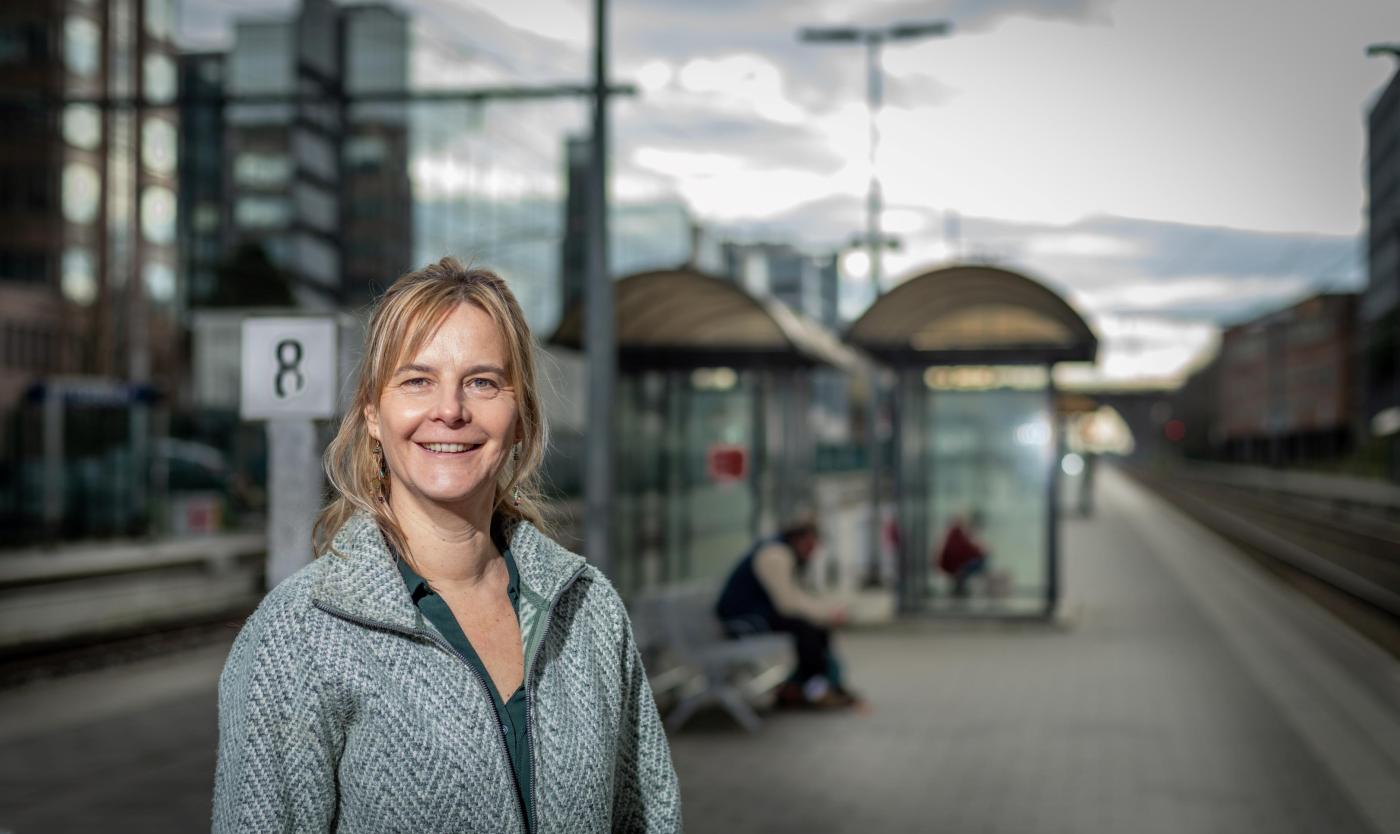
The Vrije Universiteit Brussel is leading the Flanders Technology & Innovation Brussels science festival. From 15-22 March, the Etterbeek and Jette campuses will host the cream of the crop in technology and innovation, with events in the city too. Sustainable mobility professor Cathy Macharis of the Mobilise research group will lead a hackathon with 60 students in the city centre on 21 March. “We are happy to tap into their knowledge,” she said.
Why are you enlisting the help of 60 students?
“In this hackathon, we want to think about metropolitan mobility problems, using Brussels as an example. With 60 students, we will brainstorm solutions to make mobility and logistics more sustainable. We believe in co-creation and collective intelligence. Students are also quick to use artificial intelligence; they recognise the new possibilities of the digital world. That’s why we like to tap into their knowledge.”
“The pain of mobility is not only in the emissions that contribute to the global climate crisis.”
“We have been doing hackathons like this for years on our sustainable mobility and logistics course. Each time it produces good results. The success is in the formula. You start from scratch, form teams, brainstorm, make a business case and sell it in a pitch.”
What are the problems with mobility?
“The pain of mobility is not only in the emissions that contribute to the global climate crisis. It’s also about congestion that leads to traffic jams and the constant demand to invest money in infrastructure renewal. Not to mention work accessibility and local air pollution. It creates social problems: road safety, noise pollution, affordability of transport. The logistics of our mobility also pose problems. How do we protect couriers from abuse and how do we make sure our streets don’t get clogged?”
Is AI a miracle solution for mobility?
“No, certainly not. The possibilities of AI should be looked at carefully, but it should not be an end in itself. There are areas where AI does more harm than good. Waze, for example, is a handy and effective app, but by default it looks for the fastest route. As a result, you sometimes drive through residential areas or end up in vulnerable green areas. However, AI also offers great opportunities. Look at what it does in an autonomous car: all that information coming in through sensors is converted by AI into a car that can drive independently. An interesting application that we have already tried is sentiment analysis on social media. How do people think and feel about certain topics and decisions? We collected tweets over a three-year period (2019-2022) about the GoodMove mobility plan in Brussels. A paper on this will be released soon. At a time when the gap between authorities and citizens is often criticised, this is a very welcome exercise.”
How do you avoid having only the top of society benefit from sustainable solutions?
“The government has put a lot of money into electric cars, but they are not a complete solution. Many problems are still the same: congestion, use of space, materials that need to be mined... They reduce CO2 emissions, but we’re not going to solve every problem by making everything electric.”

“We need to rethink the entire mobility system.”
"We need to have that critical and systemic view even during the hackathon. What is initially a great idea can be very disappointing in practice. For example, you have the ‘Jefson effect’. People who have insulated their homes well are going to turn up the temperature. Or the owner of a new electric car, who is going to travel longer distances. Those are side effects that you might not consider at first. We need to rethink the whole mobility system.”
What are the main goals for the AI and Mobility Hackathon?
“We want to come up with some innovative solutions, which will also allow us to set a research agenda and propose innovative ideas for Brussels and Flanders. So the energy and ideas released during the hackathon will have a scientific follow-up. We really want to contribute to more sustainable mobility. For students, participating in an innovative and co-creative project like this is a valuable experience, and not only because they contribute to a sustainable world. They get to work with students from different institutions and from different disciplines. This is a wonderful experience that they can benefit from. There will be experts on logistics, AI and mobility. And there’s a competition element to it: the best pitch wins.”
Organisation
The hackathon is organised with FARI, the AI for the Common Good Institute. They are doing this from the House of Sustainable Transitions, where they bring together two research groups: Mobilise, for its expertise in mobility and logistics, and Datalab, with expertise in AI.
The FTI Brussels programme can be found here.